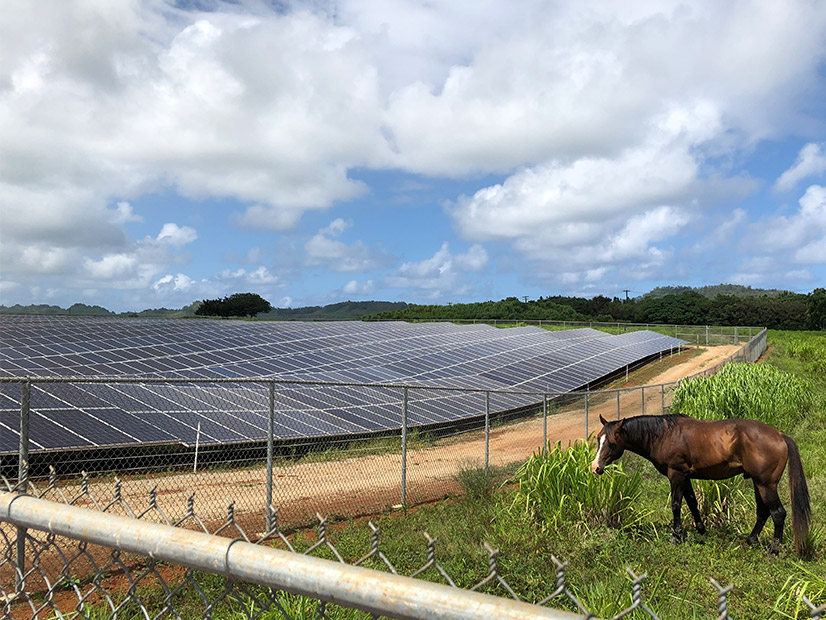Jim Matheson believes President Biden’s goal of decarbonizing the U.S. power system by 2035 is “overly ambitious.” But the CEO of the National Rural Electric Cooperative Association (NRECA) said during a Monday press call that nonprofit co-ops should get a piece of the action if Congress passes tax credits and other incentives to spur clean energy production.
“Most of the renewable energy sold by co-ops isn’t owned by co-ops because we can’t get the tax breaks,” Matheson said, as NRECA kicked off a weeklong virtual “fly-in” lobbying campaign. “So, we sign a power purchase agreement with a third party [who] takes the tax credit. It’s not as efficient as if we could do it directly.”
The 1,500 co-op representatives zooming in for virtual meetings with their congressional representatives this week will be asking for some kind of direct-pay incentive similar to the federal investment tax credit or production tax credit, he said.
“Our goal is to make sure Congress understands that whatever technology they’re trying to incentivize — renewable, carbon capture sequestration, battery storage, electric vehicle infrastructure or technologies we’re not even thinking of right now — let’s incentivize everyone in the electric utility sector, including electric co-ops,” he said.
The incentive issue is one of three NRECA congressional priorities Matheson discussed during the call. The organization is also pushing hard for a bill that would allow co-ops to refinance loans they have received from the USDA Rural Utilities Service without incurring a prepayment penalty. Originally introduced in the last Congress, the refiled bill has bipartisan support and would save co-ops about $10 billion, which could be channeled directly to benefit co-op members, Matheson said.
The third issue on the NRECA agenda is more effective support for broadband installation in rural communities, where 23 million people still don’t have the updated connections that are now “just an essential aspect of life,” he said.
Innovation and Flexibility
While often overshadowed by large investor-owned utilities, nonprofit electric co-ops and municipal utilities together provide about 30% of U.S. power generation, Matheson said. Co-ops often serve low-income, remote communities where reliability and affordability are critical issues, which is why NRECA is skeptical of Biden’s 2035 decarbonization target, he said.
“The questions we’re asking about any proposed standard is, if you want to hit that target, how are you going to do it?” he said. “What are going to be the commercially viable, always available and affordable carbon-free technologies to provide electricity?”
In regions without strong solar or wind resources, “the answers could be you invest a ton of money in electric transmission and wheel the power in from where it is made,” Matheson said. “You’re going to have look at what location-specific technologies work in a given region.”
At the same time, electric co-ops in many states are unregulated, and setting and meeting aggressive decarbonization goals. The Vermont Electric Co-op recently committed to a carbon-free power supply by 2023. And on the same day, the Kit Carson Electric Cooperative in New Mexico announced it had closed financing for new solar plus storage projects that will allow it to produce 100% of its daytime power from solar by 2022.
While acknowledging the role of some co-ops as industry innovators, Matheson said, federal energy policy should be flexible enough to allow for the wide geographic diversity of NRECA’s membership.
“We have 900 different members of the National Rural Electric Cooperative Association across the country,” he said. “They are all in their own set of circumstances based on where they are, the loads they serve. So, flexibility in federal policy is something we value a lot on any issue. Because we have this capacity to be more nimble, we want that flexibility for what’s right in a local situation.”






